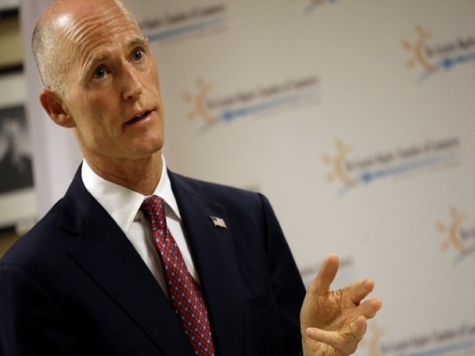In the late 1820s, in reaction to taxes levied by an overreaching federal government, South Carolina took a stand. Leaning heavily on what we today would called a “10th Amendment movement,” the Palmetto state recognized the people as the ultimate arbiter of what is and isn’t constitutional. The state, rather than the federal government, got to draw lines in the sand that weren’t to be crossed.
The tariff of 1828 crossed those lines in South Carolina’s opinion, thus they declared the tariff null and void within the boundaries of their state.
Enter Florida in 2012, some 184 years after the nullification crisis began. Republican Gov. Rick Scott says Florida will not comply with the Obamacare ruling–they “will not expand the Medicaid program in order to lower the number of uninsured residents, nor will Florida set up a state-run health exchange, a marketplace where people who need insurance policies could shop for them.”
Speaking to Fox News’ Greta Van Susteren, Gov. Scott said, “We care about having a health care safety net for the vulnerable Floridians, but this is an expansion that just doesn’t make any sense.”
The original nullification crisis ended with the federal government agreeing to repeal the problematic tax scheme over a number of years. It would be a boon to freedom if Republican governors like Scott, and others who say they’ll join him, are able to withstand the pressure to go along with the federal government on Obamcare, thus contributing significantly to the efforts to repeal this monstrosity.
Whether the year is 1791, 1828, or 2012, the language of the 10th amendment is clear: “The powers not delegated to the United States by the Constitution, nor prohibited by it to the States, are reserved to the States respectively, or to the people.” In Florida’s case, Gov. Scott recognizes that the federal government is reaching for a power not delegated to it.

COMMENTS
Please let us know if you're having issues with commenting.